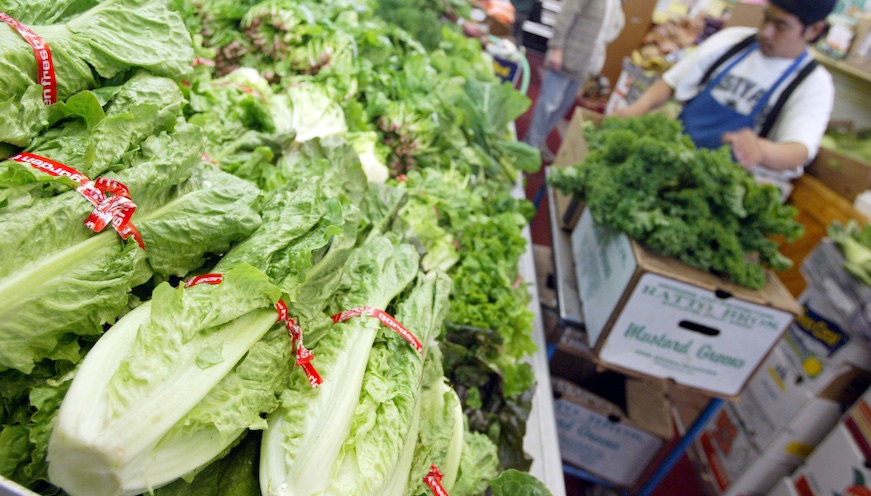Is romaine lettuce safe to eat yet? This is likely the question on the minds of thousands if not millions of health-conscious Americans as a nationwide E.coli outbreak has caused at least 84 people to fall ill.
The E. coli-contaminated romaine lettuce has shaken up lettuce-eaters, particularly since of those 84 infections, 42 have required hospitalization, according to the U.S. Centers for Disease Control which on Wednesday said nine patients developed kidney failure. The CDC reported that these numbers are on the high side for an E. coli outbreak. Fortunately, no deaths have been reported.
So, have they recalled romaine lettuce? And where, exactly, is the source of the E. coli?
So many questions, but few answers. As of Wednesday, there were no recalls of romaine lettuce in the United States, though media coverage has led to consumers avoiding the popular greens. As for the source of the outbreak — well, that’s a mystery, though an investigation is ongoing. The infected romaine lettuce has been tracked to Yuma, Arizona, which is a popular growing region for the vegetable. The problem is that no one farm has been identified as the E. coli culprit.
Is romaine lettuce safe to eat yet?
Here’s what the CDC says consumers should do (or don’t do):
-Do not eat or buy romaine lettuce unless you can confirm it is not from the Yuma, Arizona, growing region.
-Product labels often do not identify growing regions; so, do not eat or buy romaine lettuce if you do not know where it was grown.
-This advice includes whole heads and hearts of romaine, chopped romaine, and salads and salad mixes containing romaine lettuce. If you do not know if the lettuce in a salad mix is romaine, do not eat it.
Here’s what restaurants and stores should do (or don’t do):
-Do not serve or sell any romaine lettuce from the Yuma, Arizona growing region. This includes whole heads and hearts of romaine, chopped romaine, and salads and salad mixes containing romaine lettuce.
-Restaurants and retailers should ask their suppliers about the source of their romaine lettuce.




















